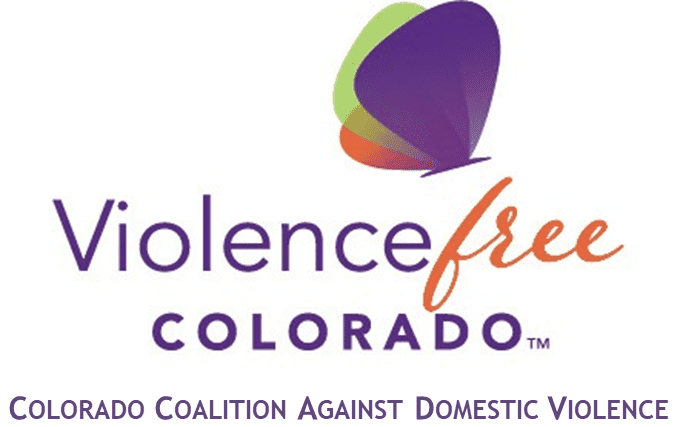DV, Housing and Economic Justice
The interconnection between domestic violence, homelessness, and economic justice is profound, particularly for survivors who may belong to marginalized communities. The fundamental need for secure housing and financial stability is universal for everyone to flourish. However, domestic violence survivors often encounter numerous obstacles in accessing these essential resources.
Here's How survivors experience...
Here are a few ways survivors experience homelessness.
- For certain survivors, relocating becomes a necessary step to ensure their safety, yet they encounter significant obstacles in finding suitable housing, often experiencing a scarcity of available options or even complete lack thereof.
- Due to the abuse inflicted by their partner, survivors may find themselves with eviction records and a lack of positive landlord references, further complicating their ability to secure stable housing.
- Domestic violence stands as a leading factor driving women and children into homelessness.
- The majority of homeless women report having endured significant instances of physical and/or sexual assault during their lifetimes.
- For numerous survivors of domestic violence, the concept of “home” lacks the safety and sanctuary it should provide, primarily because of the ongoing threat posed by their abusive partner, even if they reside separately.
Here are a few ways survivors experience financial instability.
- Many survivors of domestic violence encounter financial manipulation and control from their current or former partners. As a result of this abuse, they often face challenges such as damaged credit, restricted access to financial resources, and limited employment opportunities.
- Survivors may find themselves compelled to miss work in order to attend court proceedings or seek necessary support services as a result of the abuse inflicted by their partner.
- The scarcity of affordable housing and housing assistance exacerbates the already limited choices available to survivors.
- The absence of employment in an abusive partner is linked to heightened lethality risk for the survivor/victim.
Here are a few ways survivors experience discrimination.
- Survivors frequently encounter discriminatory practices when searching for new housing.
- Members of the LGBTQ+ community experience elevated levels of violence and homelessness compared to their heterosexual, cisgender counterparts.
- Discrimination rooted in racism, ableism, transphobia, homophobia, as well as stringent citizenship/visa prerequisites, among other factors, erect additional hurdles and compound the harm experienced by survivors from marginalized communities as they endeavor to secure housing.
Here's Our Stance
We advocate for:
- Policies aimed at funding and expanding access to affordable housing for all residents of Colorado, including survivors of abuse and individuals seeking to address abusive behaviors.
- Policies that enable survivors to utilize flexible scheduling, sick days, and job-protected leave to take necessary time off from work to seek support in response to their partner’s abuse.
- A transformation in community-based anti-domestic violence advocacy, moving away from temporary sheltering towards innovative service models that facilitate survivors in securing safe and stable long-term housing immediately. This shift requires a corresponding adjustment in funding practices and increased flexibility from funding bodies to enable domestic violence agencies to more effectively meet the evolving needs of survivors. Recognizing that this transition may take time, our technical assistance staff also provide support to local domestic violence agencies and shelters in Colorado, assisting them in implementing harm reduction strategies and enhancing cultural responsiveness within their shelter services.
- The provision of no-barrier/low-barrier flexible financial assistance to domestic violence survivors, ensuring they can access support whenever necessary and for as long as needed. Achieving this will necessitate a shift in funding practices from local to national levels. We actively engage in advocacy efforts to raise awareness about the importance of flexibility in funding and encourage funders to adopt more flexible approaches.
Our Stance
Survivors frequently confront the agonizing choice between enduring an abusive relationship or facing homelessness and financial insecurity.
Affordable housing is critical for survivors to be able to achieve safety and financial stability.
Additional Resources
Support for
Financial Security
Within the framework of assisting domestic violence survivors, “economic justice” refers to empowering survivors to attain both safety and financial security. This support varies based on each survivor’s individual circumstances, with the understanding that safety and financial stability are defined uniquely by each survivor.
Read our Economic Justice Pocket Guide ›
Support for
Community Advocates
Given the interconnectedness of domestic violence, housing, and economic justice, our coalition has established a specialized team devoted to aiding advocates in their efforts to address survivors’ safety, housing, and financial requirements.
For inquiries, please reach out to our Housing and Economic Justice Team ›
** Please be advised that the Economic Justice Pocket Guide referenced above is presently undergoing a comprehensive update to ensure the most current and accurate information is provided.
** Please be aware that our agency does not offer direct emergency shelter or other housing assistance to survivors, including services like homelessness prevention, rapid re-housing, and housing stability support. However, local programs in your area may be able to provide further assistance in accessing these resources. We encourage you to locate direct services nearby.
